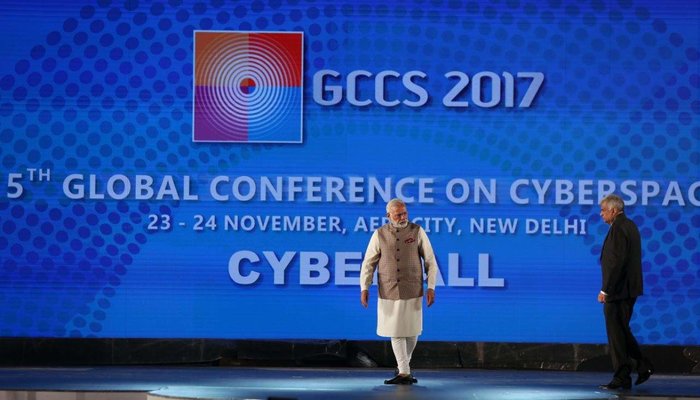
It seems as though Narendra Modi’s vision of India is a step closer than before. His ideology of implementing the JAM has had a positive effect.
Prime Minister Narendra Modi on Thursday said financial inclusion through Jan Dhan Bank accounts, Aadhar platform and Mobile phone (JAM) had helped to reduce corruption and bring transparency to the nation.
“Three factors – financial inclusion through Jan Dhan Bank accounts, second Aadhar platform and third the Mobile phone – have greatly helped reduce corruption and bring transparency in the country,” Prime Minister Modi said, after inaugurating the 5th Global Conference on ‘Cyber Space’ in New Delhi. This is the fifth edition of the conference, which is touted to be one of the biggest in this space and is being attended by cyber chiefs of around two dozen nations along with 2,000 delegates.
The prime minister said the cyber-space had transformed the world over the last few decades and it was followed by the advent of the social media.
“Surely, we can walk the fine balance between privacy and openness on one hand, and national security on the other. Together, we can overcome the differences between global and open systems on one hand, and nation-specific legal requirements on the other,” said Modi. He has in the past urged the country’s strong IT industry to take a lead in cybersecurity by developing products that can be deployed at a large scale arguing that the next world war would be fought in the cyberspace.
Modi also launched the Umang mobile application which is an integrated platform for government to citizen services. The app currently hosts around 160 services from 33 government departments. The services include those for Aadhaar authentication, school exam center locator, hospital appointment booking, DigiLocker, etc.
Prime Minister Modi also praised the Indian IT, which is being recognized worldwide.
“Today, digital technology has emerged as a great enabler. It has paved the way for efficient service delivery and governance. It is improving access, in domains from education to health,” he said.
“We in India give prime importance to the human face of technology and are using it to improve what I call the ‘ease of living’. We are using mobile power or M-power to empower our citizens,” he added.
He further said the digital technology was contributing to more farm incomes and added that with transformative ideas, Indians could go a long way in taking India to new heights.
Taking an example of the cyber technology used in India, the prime minister said these measures helped to deepen connections with the citizens.
“Cyber-space remains a key area for innovation. Our startups today are looking to provide solutions to everyday problems and improving lives. I am confident that the global investor community will recognize the immense potential waiting to be tapped from India’s startup pool,” he said.
“The internet, by nature, is inclusive and not exclusive. It offers equity of access and equality of opportunity,” he added.
The two-day event on cyber-security has been organized for the first time in India. The theme of the conference is ‘Cyber for All: A Secure and Inclusive Cyberspace for Sustainable Development.’
Representatives from around 124 countries and 33 Ministerial delegates from 31 countries, including Prime Minister of Sri Lanka Ranil Wickremasinghe, have attended the conference.
Mr. Wickremasinghe said that there is a need to strike a balance between the free flow of information and individual freedom. He also said that we need to ensure net neutrality since it lowers the barriers to entry especially for the underprivileged.
The conference was being organized to promote the importance of inclusiveness and human rights in global cyber policy.

Post Your Comments